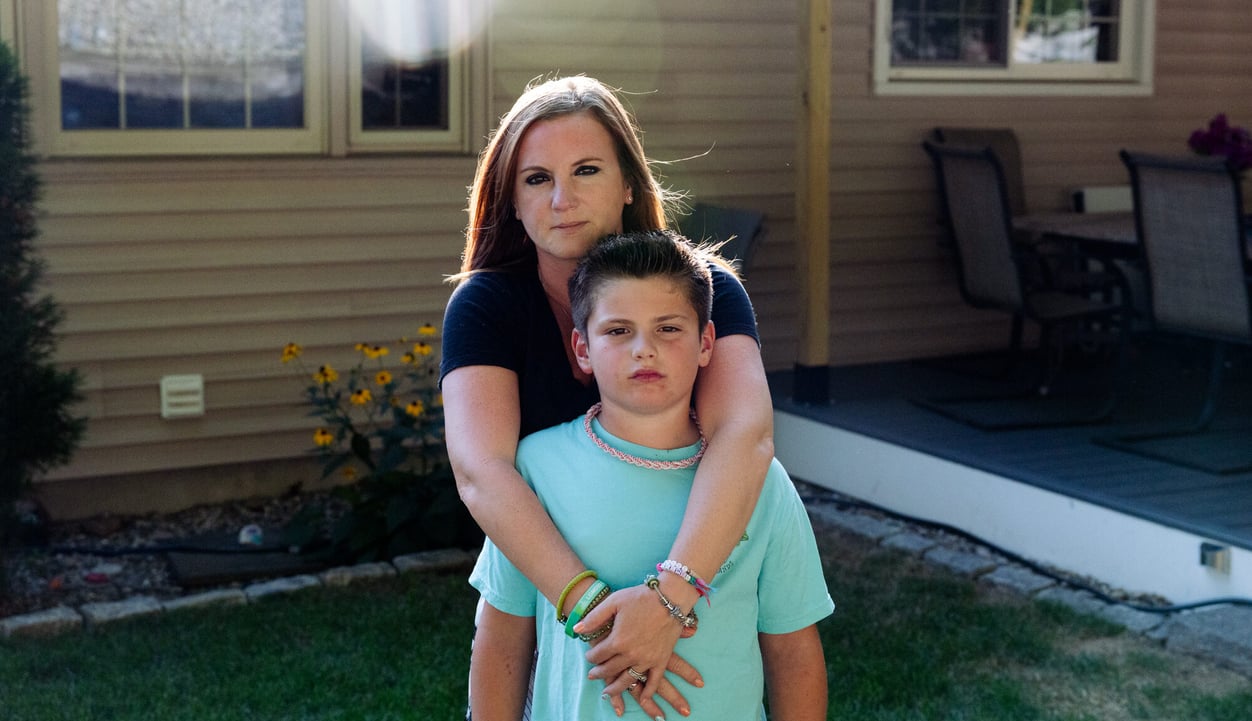biotech
'Overnight, it's gone': Patients left behind by Sarepta

Shahrzad Rasekh for STAT
The saga of Sarepta's gene therapy for Duchenne muscular dystrophy is the biggest story in biotech this summer. The spectacle has stoked confusion, fear, and heartbreak for families with children who suffer from the disease; it's also swung stock prices and contributed to the (temporary) ouster of a top FDA official. But out of the spotlight, there's another community left reeling.
As Sarepta fought for its Duchenne treatment, the company pulled out of a nearly decade-long commitment to develop gene therapies for limb-girdle muscular dystrophy, a lesser known collection of over 30 ultra-rare and debilitating muscle disorders. It was devastating news for families who for years watched their programs inch along, while Sarepta devoted most of its resources to Duchenne, the most common and universally fatal form of muscular dystrophy.
"One of the trickiest and most wrenching parts of reporting on gene therapy over the past few years is how often the needs of individual families differ from the needs of the field," STAT's Jason Mast told me over Slack. Read the story about how families like the one shown above are handling the latest devastating disappointment.
policy
CDC advisory panel member no longer trusts CDC
Robert Malone, a newly-appointed member of the CDC's Advisory Committee on Immunization Practices, wrote in a blog post yesterday that he "will no longer be able to trust that what is presented in CDC summaries to the ACIP is transparent, accurate, and unbiased." The comment was part of an introduction Malone wrote to a guest essay picking apart the data for Merck's RSV monoclonal antibody for babies, which Malone and other panel members voted in June to recommend. Health secretary Robert F. Kennedy Jr. later accepted the recommendation.
The analysis was first published by the Brownstone Institute, a nonprofit built on criticism of policy responses to the Covid-19 pandemic like lockdowns, calling them a "trauma" that demonstrates the government's willingness to "relinquish freedom and fundamental human rights in the name of managing a public health crisis." Malone himself first gained widespread attention for questioning the safety of Covid-19 shots and spreading conspiracy theories on Joe Rogan's podcast.
Monoclonal antibody shots are a safe and effective way to protect babies from RSV, according to the American College of Obstetricians and Gynecologists. The group recommends babies younger than eight months receive a monoclonal antibody product if their birthing parent didn't recieve the vaccine during pregnancy.
heart health
Is a statin drug right for you?
As STAT's Liz Cooney puts it, answering this question involves a math problem with life-and-death consequences. As you might remember, a new model to estimate one's risk for atherosclerotic cardiovascular disease won raves in late 2023 for drawing on a larger, more diverse population than its predecessors. But it didn't make the math any easier — along with praise came predictions last year that 40% of U.S. adults might no longer qualify for statins, widely prescribed pills that fight artery-clogging cholesterol.
Equations estimating risk always come first, but thresholds are the next step to establish who might benefit from treatment. Determining a threshold that balances benefit with risk is why medical organizations have yet to issue guidelines based on the new equations, Liz explains. But a research letter published yesterday in JAMA Cardiology reveals what different thresholds would look like. Read more from Liz on what they found.


No comments